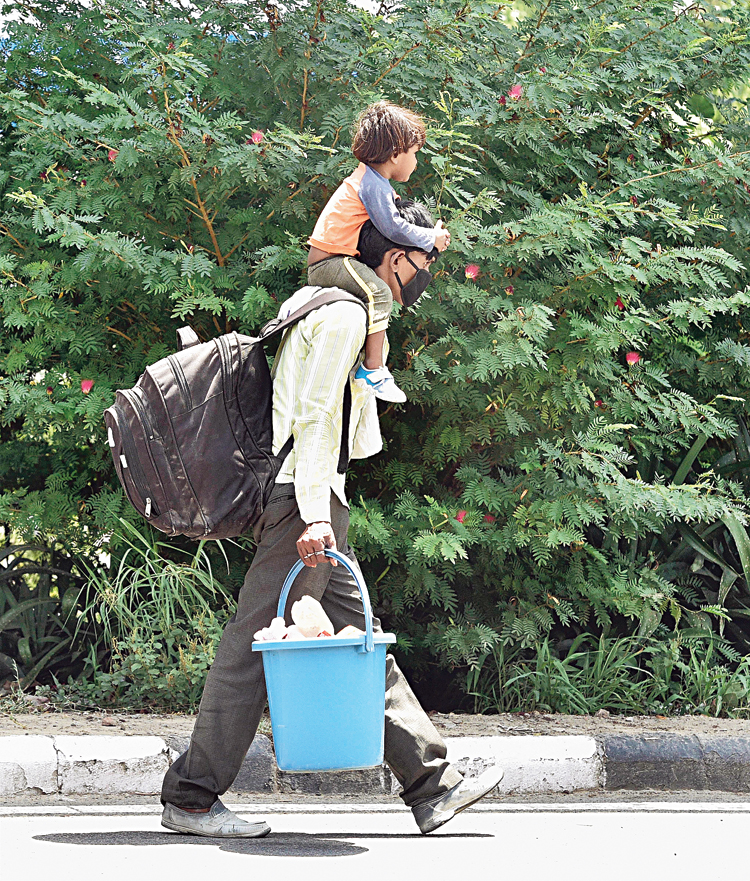The Supreme Court on Friday declined to pass directions to the central and state governments to ensure that migrant workers did not try to walk back home, saying it was the states’ responsibility to adopt the necessary measures.
“There are people who are walking and not stopping. How can we stop it?” Justice L. Nageswara Rao, who headed the three-judge bench, told petitioner and advocate Alakh Alakh Srivastava.
“It is impossible for this court to monitor who is walking and who is not walking,” the court said, rejecting the petition.
Advocate Srivastava had requested the court to frame guidelines so that the lakhs of migrants could return home with dignity.
He had cited how 16 migrants sleeping on railway tracks during an arduous walk home had been run over by a goods train in Aurangabad, Maharashtra.
The petitioner had argued that the hardships migrants were undergoing while travelling hundreds of miles on foot could have been avoided had the Centre and the states stepped in to help.
But the bench, which included Justices Sanjay Kishan Kaul and Bhushan R. Gavai, said: “Your knowledge is based on newspaper clippings. How can you expect us to pass orders? Let the states take action.”
Justice Kaul observed: “Every advocate reads incidents in the papers and becomes knowledgeable about every subject. Your knowledge is totally based on newspaper clippings and then under (Article) 32 you want this court to decide. Let the state decide. Why should this court decide or hear?”
Justice Kaul told Srivastava the court would give him permission to monitor the transport arrangements being made for the migrant workers in various states if he was willing to accept the challenge. But the advocate did not take the offer up.
Solicitor-general Tushar Mehta told the court the states had begun providing transport, and it was unfortunate that some of the migrants did not want to wait their turn. He said using force on them (to stop them walking) would be counterproductive.
“States are providing inter-state transport. But if people get angry and (set off) on foot instead of waiting for transport to be provided, nothing can be done,” he said.
“We can only request that people do not walk. Using force to stop them would be counterproductive.”
Hearing another petition, though, the bench sought responses from the Maharashtra and Uttar Pradesh governments on the steps their nodal officers were taking to help migrants return home safely.
Petitioner Sagheer Ahmed Khan, an advocate, had through senior advocate C.U. Singh contended that the arrangements the Centre and the states had announced to ferry the migrants home remained mostly on paper.
Khan told the court he had approached the nodal officers in Uttar Pradesh responsible for facilitating the return of migrants from Maharashtra, but received no positive response.











